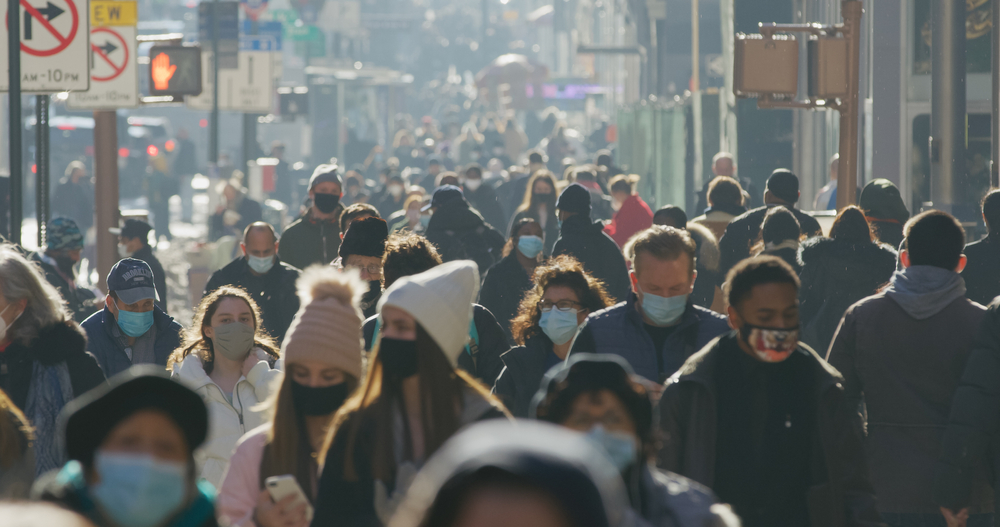HDR UK North: What's to come?
2 June 2020 | Author: Munir Pirmohamed, HDR UK Medicines in Acute and Chronic Care Driver Programme Co-Director and Co-Director
In the midst of a pandemic, on 1 May, we were delighted to launch the HDR UK North Partnership and become the latest member of the network of 8 HDR UK Substantive Sites now covering the whole of the UK.
Geographically, the North of England comprises the North East, North West and Yorkshire and Humber, with an area of about 30,000 km2. We cover a population of ~16 million, 85% of whom live in urban areas. Unfortunately, the North has some of the worst health outcomes in the UK largely because of health and social inequalities – 19 of the 20 most deprived local authorities are in the North.
The HDR UK North partnership comprises 6 Universities in the North (Lancaster, Leeds, Liverpool, Manchester, Newcastle, Sheffield), a large number of digitally enabled NHS Trusts (including those in Bradford, Durham and Darlington, Leeds, Liverpool, Newcastle, Salford, Sheffield and Wirral), and 4 Academic Health Science Networks (AHSNs). The Northern Health Science Alliance is also a partner. This partnership brings together unique data assets and infrastructure within our Universities and NHS Trusts, and world-leading expertise in clinical care and research. We have worked together extensively in the past, for instance, in the highly regarded Connected Health Cities Programme, which helps form the framework for this partnership.
Our work will mainly fall within the HDR UK Better Care programme and we will focus on frailty, an area of unmet medical and social care need, as highlighted in the NHS long term plan. Frailty accounts for a huge number of patient stays in hospital, which will increase further over the next few decades because of the change in our demographics – it has been estimated that there will be an additional 800,000 people with frailty in 50 years time. The cost of frailty to the whole health and social care system has been estimated to be £15 billion per annum. Our aim is to improve the patient journey for those living with frailty, which can currently be less than optimal, as described by patient Mrs Andrews here.
We have 3 main projects: Improving structured referrals in care homes through the use of an app; development of a learning system to optimise anticholinergic medication prescribing for older people living with frailty; and better antibiotic prescribing in frail elderly people on polypharmacy. These projects will be supported by 4 cross-cutting themes (patient, public and practitioner involvement and engagement; data architecture, governance, and curation; health data science and training and capacity building) which will ensure a standardised approach across HDR UK North. The overall framework of our partnership is to use large-scale real-world datasets, upon which we will leverage our extensive capabilities in advanced analytics to develop actionable insights that lead to quality improvement and optimisation of care delivery. We will do this by continuously learning from our individual projects, but most importantly by working within HDR UK’s Better Care Programme. This collaborative network will allow us to work together on mutually beneficial questions and share learnings, that will eventually mean we can scale and implement our findings not only regionally but also nationally. Public trust, engagement, and involvement, are key to our approach, and this is underpinned by our commitment to ensure our work is openly accessible under robust governance procedures.
At the time of writing, we are only 1 month old. The key priority is to get the partnership up and running as quickly as possible, a challenge in normal times, but even more so in the middle of a pandemic. Nevertheless, I think we have hit the ground running. Even at this early stage, we are developing collaborative projects with the other HDR UK sites to address the urgent needs generated by COVID-19, for example looking at the impact in COVID-19 on care homes, whether drugs acting on the angiotensin system affect outcomes of COVID-19 infection, and the influence of ethnicity on COVID-19 outcomes.
It is great to be part of the HDR UK community, and we are excited to contribute to the goal of HDR UK by “uniting the UK’s health data to enable discoveries that improve people’s lives”.



